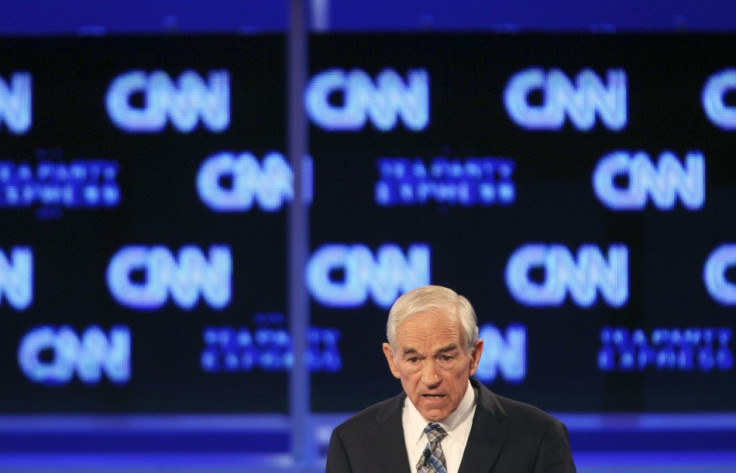U.S. CNN/Tea Party Debate: Has America Reached a New Low? [VIDEO]
OPINION

The Tea Party debate held on CNN provoked uproar after the GOP audience cheered and screamed "Yeah!" after crank Ron Paul suggested letting the uninsured die because "that's what freedom's all about."
Ron Paul's definition of freedom, a key principle in the American political dialectic and ideology, brought back fears of the George W. Bush era, where shock comments were often used to provoke public interest.
It all started when CNN host Wolf Blitzer asked Texas representative Ron Paul how society should respond if an hypothetical 30-year-old man without health insurance suddenly goes into coma and end up in intensive care for a minimum of six months.
If you're uninsured and on the brink of death, that's apparently a laughing matter to some audience members at last night's tea party Republican presidential debate, to which Paul happily replied the government should not feel responsible or help in any way as "That's what freedom is all about, taking your own risks," before adding, "this whole idea that you have to prepare to take care of everybody ..."
Paul's answer was met by cheers and applause from the crowds and Blitzer asked the Texan representative "Are you saying that society should just let him die?" To which the crowds answered by screaming "Yeah!"
Realising that the discussion was now moving outside the frontier of the politically correct, Paul disagreed with the audience quickly, adding "No," adding he practiced medicine before Medicaid was implemented, at a time when churches took care of medical costs.
"We never turned anybody away from the hospital," he added.
Paul's discourse on health care was based on the notion of individual responsibility, which he said should now be put forward as he explained that as people stopped taking personal responsibility for their health care, the prices sharply increased.
The crowd was later on further angered by Paul suggesting that not all Muslims are terrorists, and that Palestinians do not get "fair treatment," which was met with jeers.
Though Paul talked in more depth about such issues as health care and government-backed health insurance -- both of which are set to be pivotal in the 2012 election -- the audience's reaction overshadowed the debate as many viewers, analysts and politicians said they had been shocked by the behavior of those in attendance.
The following day, Texas Governor Rick Perry acknowledged the lack of sensitivity of the audience.
"I was a bit taken aback by that myself," Perry told NBC news. "We're the party of life. We ought to be coming up with ways to save lives."
The debate also seems to have brought out division within the Republican Party as Conservative Andrew Sullivan noted that "America, moreover, has a law on the books that makes it a crime not to treat and try to save a human being who walks into an emergency room. So we have already made that collective decision and if the GOP wants to revisit it, they can," Sullivan wrote, before adding "Maybe a tragedy like the death of a feckless twentysomething is inevitable if we are to restrain healthcare costs. But it is still a tragedy. It is not something a decent person cheers."
© Copyright IBTimes 2025. All rights reserved.





















